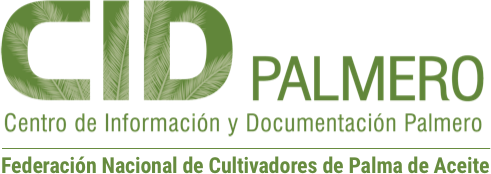Use of palm and kernel oils in the soaps and detergents industry
Publicación:
Revista Palmas; Vol. 28 Núm. especial, (2007); 17-22
0121-2923
Revista Palmas; Vol. 28 Núm. especial, (2007); 17-22
0121-2923
Abstract
The rapid increase in the world production of palm oil and palm kernel oil has also had a significant impact on the sector of soaps and detergents. The soap production technology is rapidly changing from oils and fats saponification (usually tallow and coconut oil) to fatty acids neutralization with sodium hydroxides. In Malaysia and Indonesia, most of these soap units are being installed close to the new fatty acids plants and they use fatty acids from palm oil and palm kernel oil as raw material. Given the high prices of tensoactive from petrol, oleochemical derivatives are now holding stronger positions in the field of detergents. In the area of anionic tensoactive, sulphonated alcohols and sulphonated methyl esters are starting to gradually displace sulphonated alkyl benzene. The new production units for fatty acids, which is the raw material for the production of anionic and nonionic tensoactives, are almost exclusively based on hydrogenation of fatty acids or methyl esters. Petrochemical processes for the production of long-chain alcohols keep losing position. Now the tensoactive and detergent industry has available a low price raw material with the rapid development of biodiesel (methyl esters from fatty acids). Recently developed technologies enable the production of high quality sulphonated methyl esters and ethoxylated methyl esters for the production of detergents and other similar cleaning products. Tallow continued as the preferred raw material in the field of quaternary tensoactives, mainly for softeners. The quaternary (quat) esters are replacing the dimethyl distearyl chloride. Some petrol based products have never been able to hold an important position in this market, even in periods of low petrol prices. The use of palm oil for quaternary tensoactive production is only limited in markets that prefer the use of vegetable oil raw material. El rápido aumento en la producción mundial de los aceites de palma y de palmaste también ha impactado el sector de jabones y detergentes. La tecnología de producción de jabones está cambiando rápidamente de la saponificación de aceites y grasas (por lo general, sebo y aceite de coco) a la neutralización de ácidos grasos con hidróxido de sodio. La mayoría de estas nuevas unidades de jabón se está instalando en la cercanía de las nuevas fábricas de ácidos grasos (Malasia, Indonesia) y utilizan ácidos grasos de palma y de palmiste como materia prima. Debido al aumento de los precios de tensoactivos a partir de petróleo, algunos derivados oleoquímicos están tomando una posición más importante en el campo de los detergentes. En el sector de tensoactivos aniónicos, alcoholes sulfatados y ésteres metílicos sulfonados están comenzando a desplazar en forma gradual al alkylbenceno sulfonado. Nuevas unidades de producción de alcoholes grasos, que son la materia prima para la producción de tensoactivos aniónicos y noniónicos, se basan casi que exclusivamente en la hidrogenación de ácidos grasos o ésteres metílicos. Los procesos petroquímicos para producir alcoholes de larga cadena están perdiendo importancia en forma constante. Con el rápido desarrollo del biodiesel (éster metílico de ácidos grasos) una materia prima de bajo precio está a la disposición de la industria de los tensoactivos y detergentes. Tecnologías desarrolladas últimamente permiten la producción de ésteres metílicos sulfonados y ésteres metílicos etoxilados de alta calidad para la producción de detergentes y otros productos de limpieza. En el campo de los tensoactivos cuaternarios, utilizados sobre todo en suavizantes, el sebo continúa siendo la materia prima preferida. Los éster quats están reemplazando en todo el mundo a los cloruros de dimetil distearilo. En este mercado, productos a partir del petróleo, aún en períodos de bajos precios de petróleo, nunca han podido tomar una posición importante. La utilización de aceite de palma para la producción de tensoactivos cuaternarios sólo tiene importancia limitada en mercados que dan valor a la utilización de materia prima de origen vegetal.
The rapid increase in the world production of palm oil and palm kernel oil has also had a significant impact on the sector of soaps and detergents. The soap production technology is rapidly changing from oils and fats saponification (usually tallow and coconut oil) to fatty acids neutralization with sodium hydroxides. In Malaysia and Indonesia, most of these soap units are being installed close to the new fatty acids plants and they use fatty acids from palm oil and palm kernel oil as raw material. Given the high prices of tensoactive from petrol, oleochemical derivatives are now holding stronger positions in the field of detergents. In the area of anionic tensoactive, sulphonated alcohols and sulphonated methyl esters are starting to gradually displace sulphonated alkyl benzene. The new production units for fatty acids, which is the raw material for the production of anionic and nonionic tensoactives, are almost exclusively based on hydrogenation of fatty acids or methyl esters. Petrochemical processes for the production of long-chain alcohols keep losing position. Now the tensoactive and detergent industry has available a low price raw material with the rapid development of biodiesel (methyl esters from fatty acids). Recently developed technologies enable the production of high quality sulphonated methyl esters and ethoxylated methyl esters for the production of detergents and other similar cleaning products. Tallow continued as the preferred raw material in the field of quaternary tensoactives, mainly for softeners. The quaternary (quat) esters are replacing the dimethyl distearyl chloride. Some petrol based products have never been able to hold an important position in this market, even in periods of low petrol prices. The use of palm oil for quaternary tensoactive production is only limited in markets that prefer the use of vegetable oil raw material.
Palabras clave:
aceite de palma
aceite de palmiste
jabón
surfactantes
biocarburante
subproductos aceiteros
aceite de palma
aceite de palmiste
jabón
surfactantes
biocarburante
subproductos aceiteros



